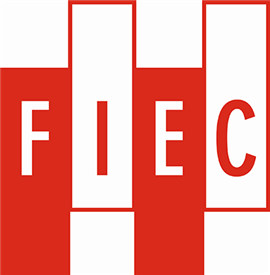FIEC: What is the bottom line for late payments in commerical transactions?
22 April 2024
Despite the current EU rules on late payments, which have been in force since 2011, construction companies still face the problem of late payments, which can threaten their very existence, as a positive cash flow is essential for their day-to-day operations. The European Construction Industry Federation (FIEC) discusses the European Commission’s plans to revise the current rules to combat late payments in commercial transactions.

In September 2023, the European Commission published its proposal to revise the current rules aimed at combatting late payments in commercial transactions, replacing the current Directive with a Regulation.
FIEC generally welcomes this move, as the current framework has failed to adequately address the issue of late payment, in particular between businesses and public authorities, which is a significant problem in many EU Member States.
This is the case even where payment periods and/or recovery measures are provided for in the 2011 Directive or national legislation.
Businesses that have not been paid on time by a public authority are often reluctant to take legal action against it.
Ensuring that public clients pay on time is not only essential to creating a prompt payment culture but also has a knock-on effect on payments throughout the supply chain.
All construction projects require some level of upfront funding to initiate and mobilise the project.
It is essential for the supply chain that they are paid on time to cover the costs they have incurred. The legally enforceable principle should be that all clients pay on time.
Industry has some reservations
While FIEC generally supports the Commission’s proposal, the introduction of certain proposed provisions is problematic.
Under the proposal, the main contractor will be required to verify the payment of its subcontractors.
The goal is to ensure that payments in public works contracts are passed down the supply chain, but FIEC warns that this obligation risks creating legal uncertainty as well as additional administrative, financial and time burdens for both the contractor and the contracting authority.
In addition, requiring the main contractor to prove that direct subcontractors have been paid, and potentially not being paid until this has been done, does not ensure that public authorities actually pay on time, which is often the start of late payment. When this happens, payments are prevented from being passed down the supply chain.
The proposal also requires Member States to designate national authorities responsible for enforcing the Regulation, but does not explicitly require them, once designated, to take action against public authorities.

Such a proposal has reportedly met with resistance from the majority of Member States, which believe that a parallel system to the courts would create confusion and bureaucracy. This view is also shared by some of FIEC’s national member federations.
What are the next steps?
Things are moving fast in the European Parliament, but there have been some setbacks.
The Committee on the Internal Market and Consumer Protection (IMCO) was due to vote on amendments at the end of February, but the vote was pushed back to the third week of March.
The Parliament is divided on some of the proposed provisions, namely those relating to payments to subcontractors in public procurement.
In the EU Council, many Member States appear to be highly critical of the proposal. In addition to concerns about the establishment of implementing authorities, many Member States feel that the Regulation does not take account of the specific features of their national systems. In this sense, many would have preferred a revision of the current directive.
Another provision reportedly causing disagreement is the 30-day payment period applicable to all businesses. Many Member States defend the contractual freedom of businesses to set longer payment periods in their contracts. While this is important, FIEC considers that maintaining the maximum period at 30 days when the debtor is a public administration is the more effective way to tackle late payments in the G2B area.
It remains to be seen how quickly this dossier will move forward. In the meantime, FIEC is in favour of clear rules to promote and ensure prompt payments from clients to contractors and between contractors, while minimising the administrative burden for all parties involved in a commercial transaction.





